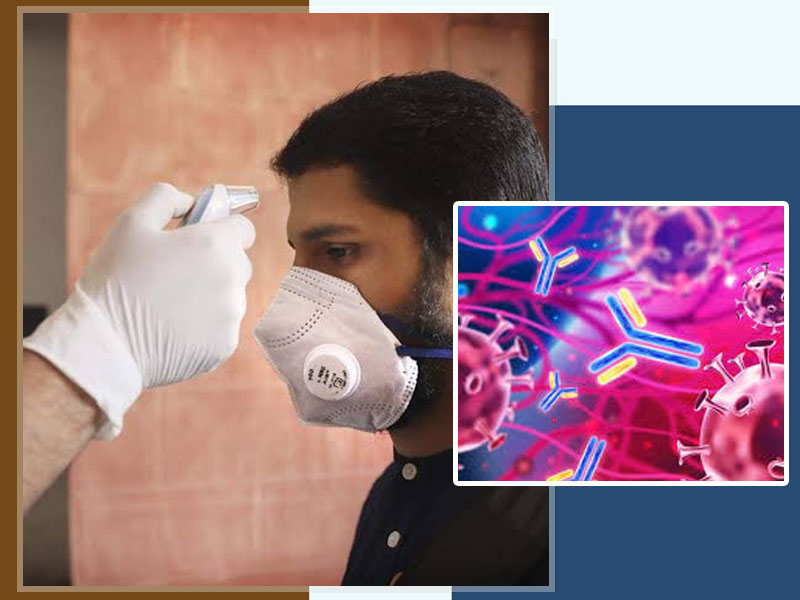
As per a study, an International team of scientists have identified antibodies that can neutralize omicron and other Covid-19 variants. These antibodies attack areas of the virus spike protein that stay unchanged even after the viruses mutate. David Veesler, investigator with the Howard Hughes Medical Institute and associate professor of biochemistry at the University of Washington School of Medicine in Seattle, led the research project, along with Davide Corti of Humabs Biomed SA, Vir Biotechnology, in Switzerland. The study’s findings were published in the journal Nature on December 23. The lead authors of the study were Elisabetta Cameroni and Christian Saliba (Humabs), John E. Bowen (UW Biochemistry) and Laura Rosen (Vir).
Table of Content:-
The study's results were published in the journal Nature. By identifying the targets of these neutralizing antibodies on the spike protein, there might be a chance to develop vaccines and antibody treatments that can prove to be effective in fighting not just the omicron variant but other Covid-19 variants that can be beneficial in the future. The lead professor Veesler said, “This finding tells us that by focusing on antibodies that target these highly conserved sites on the spike protein, there is a way to overcome the virus’ continual evolution."

The omicron variant has 37 mutations in the spike protein, that it can use to attach on cells and attack them. This is a huge number of mutations. This number tells us why the variant has been able to spread so quickly, and affecting people who have been vaccinated and reinfecting those people who got infected earlier. To observe the effect of Omicron's mutations, the researchers made a disabled, nonreplicating virus, called a pseudovirus, to develop spike proteins on its surface, as Coronavirus does. Then, they developed pseudoviruses that had spike proteins with Omicron mutations and those found on the previous variants in Covid pandemic.
Also read: Omicron Variant Of COVID-19 Symptoms: Here’s What Doctor From South Africa Says
They found out that antibodies from people who had been infected by previous strains and from those who had received one of the six most-used vaccines available, all had less ability to fight against infection. Antibodies from people who had previously been infected and those who had received the vaccines Sputnik V or Sinopharm and a single dose of Johnson & Johnson had less or no effectiveness to prevent - or "neutralize" - the omicron variant's invasion into cells. Antibodies of people who earlier received two doses of the Moderna, Pfizer/BioNTech, and AstraZeneca vaccines were able to handle some neutralizing activity, albeit reduced by 20- to 40-fold, much more than many other Covid variants.
.jpg)
Antibodies of people who were infected earlier, recovered and then had two doses of the vaccine also had less effect, but the reduction was less, around fivefold, clearly showing that vaccination after infection can be effective. In this case, antibodies from people, a group of renal dialysis patients, who had taken a booster dose with the third dose of mRNA vaccines created by Moderna and Pfizer/BioNTech demonstrated only a 4-fold reduction in neutralizing activity. "This shows that a third dose is really, really helpful against omicron," Veesler said.
Also read: Worried About Omicron And Its Aftermaths? Here Are 8 Tips By Expert To Reduce COVID Risk
The finding that antibodies are able to neutralize via recognition of conserved areas in so many different variants of the virus suggests that designing vaccines and antibody treatments that target these regions could be effective against a broad spectrum of variants that emerge through mutation, Veesler said.
Also watch this video
How we keep this article up to date:
We work with experts and keep a close eye on the latest in health and wellness. Whenever there is a new research or helpful information, we update our articles with accurate and useful advice.
Current Version